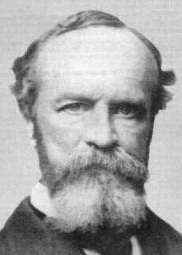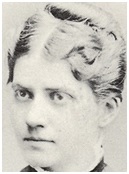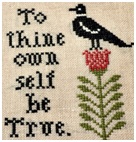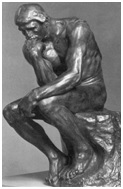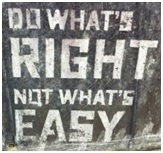|
 |
|
 |
William James - Psychology, Ethics, and Success
William James (1842-1910)
American psychologist and philosopher. Brother of the novelist, Henry James.
His most famous book is… The Principles of Psychology (1890).
What did he say about psychology, ethics, and success?
1. Pragmatism Anything is valid or right, if it:
Truth and rightness are not based on your feelings but on:
If the evidence for two ideas is the same, the one with the better consequences should be preferred. James was a close friend of the founder of pragmatism, C.S. Peirce (pictured right above) .
2. Free will and happiness You have free will to:
So vital are:
James was miserable in his first two careers as an artist and a doctor. Then he found great happiness from:
3. Be true to yourself When they do things, the best people say to themselves: 'This is the real me'.
4. Self-esteem This depends on your successes and expectations. If your expectations exceed your ability (like being a pop star), you will:
5. Make the most of yourself (particularly your soul) Take every opportunity to do useful things again and again, until they;
“Sow an action and you reap a habit; sow a habit and you reap a character; sow a character, and you reap a destiny”, he said. Make the most of the three sides of your life: a) material me
b) social me
c) spiritual me Experiences beyond material things and people. (like God, peace of mind and ethics).
The spiritual and social are more important than the material. So don’t earn more money at the expense of your:
Success is dependent on:
6. Learn Learning requires:
a) self-motivation Wanting to learn and improve yourself. b) thinking Forming your own views after:
c) attention Focusing on useful knowledge.
d) association Linking one object or idea with another (e.g. cup and saucer).
e) memory Remembering relevant facts, helped by associating one fact with another. f) reasoning
g) instinct Things you do automatically without thinking.
7. Be “tender-minded” and “tough-minded” Be kind to others, but tough and courageous enough to:
8. Understand your emotions Emotion is the feeling that results from the physical changes caused by something exciting or disturbing. So you’re sad because you cry, not crying because you’re sad. “We feel sorry because we cry, angry because we strike, afraid because we tremble”, he said. A famous example of this theory (what is now called the James-Lange theory of emotion) is “I see a bear, I run, I am afraid”. The fear results from seeing the bear.
9. Triumph over evil and religion Happy people:
Religion can give you:
First hand (or authentic) religion is best, based not on dogmatic doctrine but:
10. “Stream of thought” Life is a “stream” of one thought after another, each affected by your experience.
Key quote on learning and wisdom Truth is what works.
Key quote on creativity Truth happens to an idea. It becomes true, is made true by events.
Key quote on the learning organization A great many people think they are thinking when they are merely rearranging their prejudices.
Key quote on decision making The art of being wise is the art of knowing what to overlook.
Key quote on communication There is no worse lie than a truth misunderstood by those who hear it.
Key quotes on success The moral flabbiness born of the exclusive worship of the bitch-goddess success There is but one cause of human failure...man’s lack of faith in his true self.
Key quotes on change If things are to move upward, someone must take the first step and assume the risk of it. To change one’s life: Start immediately. Do it flamboyantly.
Key quotes on positive thinking A thing is important if anyone think it important. Pessimism leads to weakness, optimism to power.
Key quotes on happiness There is no happiness without action. There is no more miserable human being than one in whom nothing is habitual but indecision
Key quote on motivation The deepest principle in human nature is the craving to be appreciated.
Key quote on relationships When two people meet there are really six people present. There is each man as he sees himself, each man as the other sees him and each man as he really is.
Key quote on ethics Sow an action and you reap a habit; sow a habit and you reap a character; sow a character, and you reap a destiny. |
|
|
||
|
|
|
||
|
||
| Copyright © wisdomtowin.com All Rights Reserved | ||
|

